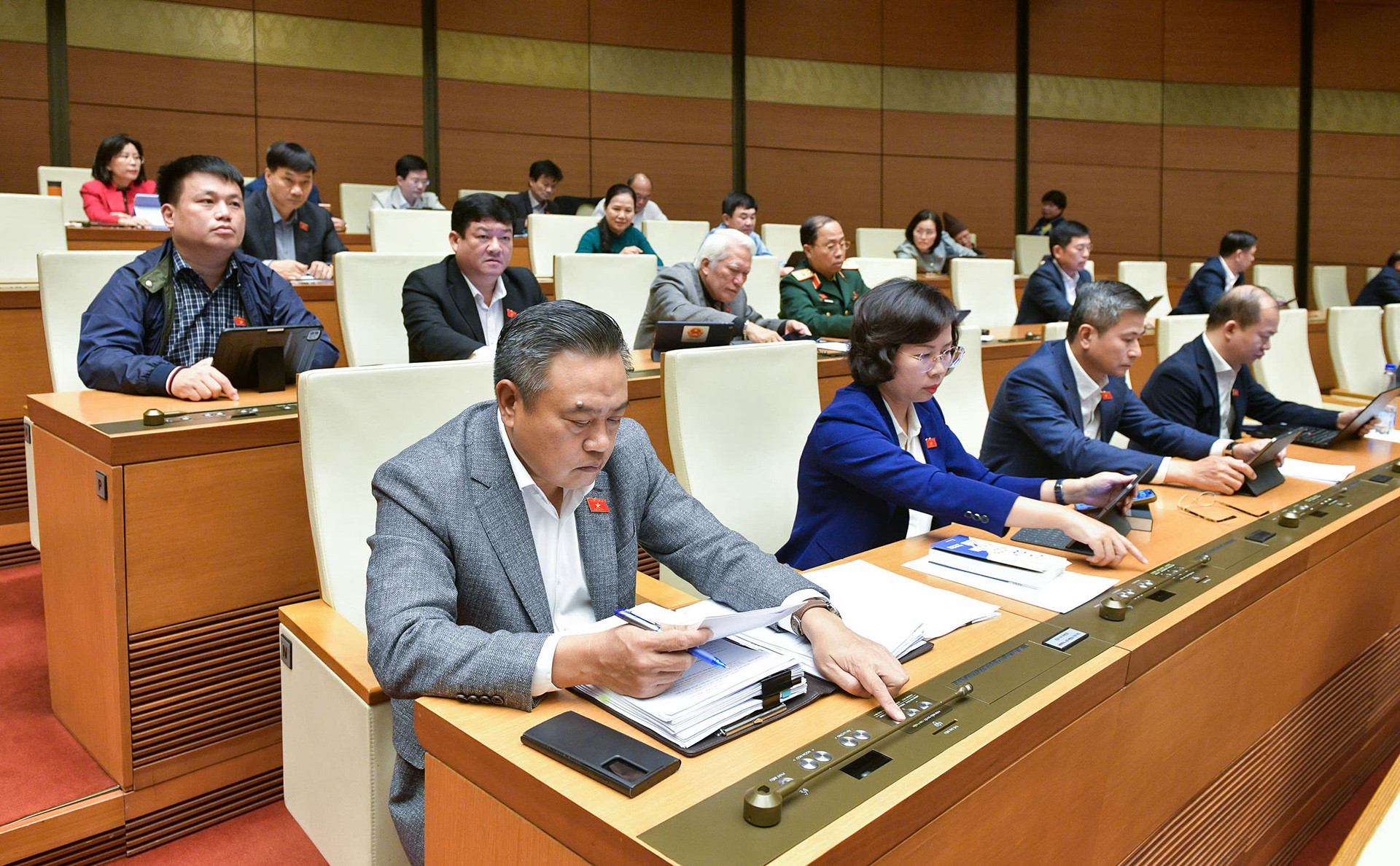On November 27, 453 out of 456 deputies voted in favor of the resolution to invest in the program. The total budget of VND 22.45 trillion ($883 million) will be sourced primarily from the central government (minimum VND 17.7 trillion), with an additional VND 4.6 trillion from local budgets.
The program aims to achieve the following by 2030:
At least 50% of communes, wards, and towns nationwide will be drug-free.
All drug hotspots, high-risk points, and retail drug operations will be identified and eliminated.
All illegal drug crop plantations will be detected and eradicated.

National Assembly deputies vote to pass the anti-drug program resolution. Photo: National Assembly.
The National Assembly has approved a national target program on drug prevention and control, allocating more than VND 22 trillion to be implemented from 2025 to the end of 2030.
Annual targets include a 3% increase in detected and arrested drug-related crimes in border areas, maritime routes, aviation, and express delivery services. Cross-border organized drug crimes and cyber-related drug offenses are expected to see a 5% increase in detection and arrests annually.
The government will report the program's progress to the National Assembly every two years, with a comprehensive review in 2030. Future initiatives for the next phase will also be proposed at that time.
While most deputies supported the program, some voiced concerns about limited funding, calling for an increased budget and additional social mobilization efforts.
The National Assembly Standing Committee has revised the budget allocation principles to address these concerns. Localities capable of balancing their budgets must finance the program independently. Central government funds will prioritize disadvantaged regions, areas with high levels of drug activity, and urgent program tasks. This includes ethnic minority regions, mountainous areas, and provinces reliant on central budget support.
The program represents a crucial step in Vietnam’s efforts to combat the growing complexity of drug-related crimes, especially in border regions and urban areas. By focusing resources on critical and vulnerable areas, the initiative is expected to strengthen law enforcement, improve public awareness, and support socio-economic development in affected communities.
Tran Thuong